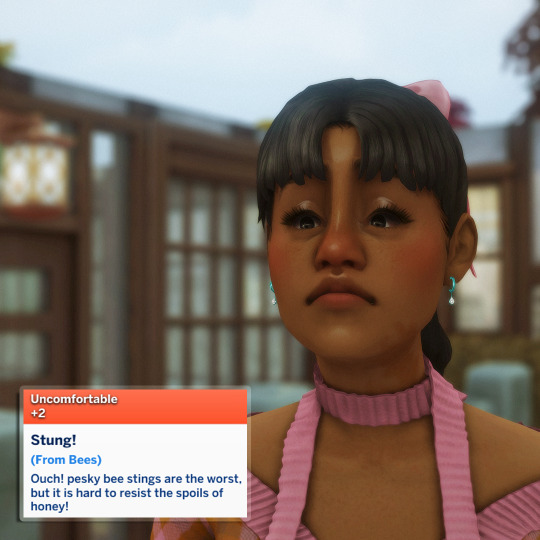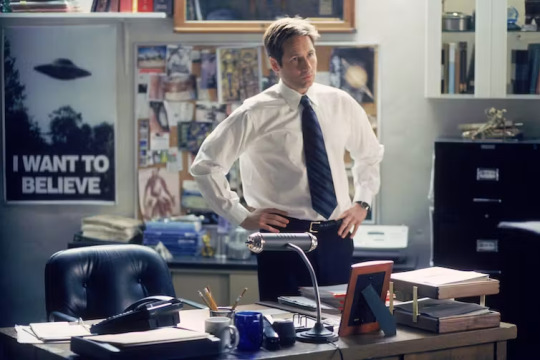#clinton legacy
Text






naomi and xavier had another baby!! clinton 🌟❤️
#naomi is so mother#the sims 4#ts4 gameplay#ts4 legacy#random legacy challenge#*naomi#*xavier#timothée by aurorangen#*clinton#*emika#rlcgen4
89 notes
·
View notes
Text
The future is not an inheritance,
it is an opportunity and an obligation.”
William Jefferson Clinton.
#quote of the day#quote of today#bill clinton#the future#shaping the future#inheritance#chance#challenge#commitment#heritage#legacy#obligation#opportunity#privilege#what you've got#what matters#what to do
42 notes
·
View notes
Text

the Clintons did this to Haiti
2 notes
·
View notes
Text


"I'm Charlie, I'm a creative writing major at Willow Creek University, and I'm going to try to write my first novel while we're here."
"That's amazing! I'm Charlene but y'all can call me Cece. I'm from Chestnut Ridge, and I'm trying to decide between sculpture and painting. I guess I'll figure it out this semester."
"Nice to meet you guys! I'm Grace. I'm a photography major, born and raised in San Myshuno, and I'm on track to graduate early if I can finish two different projects while I'm here."
"I'm from San Myshuno!"
"Really? Where?"
"You know the Spice Market..."
#charlie met her roommates#and they're getting along pretty great so far#hopefully no one asks her about her love life any time soon#ts4#ts4legacy#sims 4#sims4legacy#weiss legacy#weiss legacy gen 4#dg#charlotte weiss#grace graves#cece clinton
3 notes
·
View notes
Text

Do You Own a Family Business? Today is Your Day!!
It is National Family Owned & Operated Businesses Day which is to celebrate the family-owned and operated businesses that have survived over time despite numerous challenges and setbacks in the market economy, such as Covid. Many consumers are finding that family-owned businesses are more customer-friendly, trustworthy, and approachable than corporations.
Today is a time for family business owners to be proud, recognize their efforts, and appreciate their legacy as family-owned businesses are some of the oldest forms of businesses.
#NationalFamilyOwnedOperatedBusiness#family#business#celebrate#familymembers#oldestformsofbusinesses#survived#challegnes#setbacks#marketeconomy#covid#customerfriendly#trusting#approachable#legacy#proud#recognize#Jackson#Clinton#Canton#RankinCounty#Madisoncounty#Mississippi#Hindscounty#Ridgeland#Flowood#Brandon#Richland#webuyhouses#webuyasihhouses
0 notes
Video
youtube
Who’s to Blame for Out-Of-Control Corporate Power?
One man is especially to blame for why corporate power is out of control. And I knew him! He was my professor, then my boss. His name… Robert Bork.
Robert Bork was a notorious conservative who believed the only legitimate purpose of antitrust — that is, anti-monopoly — law is to lower prices for consumers, no matter how big corporations get. His philosophy came to dominate the federal courts and conservative economics.
I met him in 1971, when I took his antitrust class at Yale Law School. He was a large, imposing man, with a red beard and a perpetual scowl. He seemed impatient and bored with me and my classmates, who included Bill Clinton and Hillary Rodham, as we challenged him repeatedly on his antitrust views.
We argued with Bork that ever-expanding corporations had too much power. Not only could they undercut rivals with lower prices and suppress wages, but they were using their spoils to influence our politics with campaign contributions. Wasn’t this cause for greater antitrust enforcement?
He had a retort for everything. Undercutting rival businesses with lower prices was a good thing because consumers like lower prices. Suppressing wages didn’t matter because employees are always free to find better jobs. He argued that courts could not possibly measure political power, so why should that matter?
Even in my mid-20s, I knew this was hogwash.
But Bork’s ideology began to spread. A few years after I took his class, he wrote a book called The Antitrust Paradox summarizing his ideas. The book heavily influenced Ronald Reagan and later helped form a basic tenet of Reaganomics — the bogus theory that says government should get out of the way and allow corporations to do as they please, including growing as big and powerful as they want.
Despite our law school sparring, Bork later gave me a job in the Department of Justice when he was solicitor general for Gerald Ford. Even though we didn’t agree on much, I enjoyed his wry sense of humor. I respected his intellect. Hell, I even came to like him.
Once President Reagan appointed Bork as an appeals court judge, his rulings further dismantled antitrust. And while his later Supreme Court nomination failed, his influence over the courts continued to grow.
Bork’s legacy is the enormous corporate power we see today, whether it’s Ticketmaster and Live Nation consolidating control over live performances, Kroger and Albertsons dominating the grocery market, or Amazon, Google, and Meta taking over the tech world.
It’s not just these high-profile companies either: in most industries, a handful of companies now control more of their markets than they did twenty years ago.
This corporate concentration costs the typical American household an estimated extra $5,000 per year. Companies have been able to jack up prices without losing customers to competitors because there is often no meaningful competition.
And huge corporations also have the power to suppress wages because workers have fewer employers from whom to get better jobs.
And how can we forget the massive flow of money these corporate giants are funneling into politics, rigging our democracy in their favor?
But the tide is beginning to turn under the Biden Administration. The Justice Department and Federal Trade Commission are fighting the monopolization of America in court, and proposing new merger guidelines to protect consumers, workers, and society.
It’s the implementation of the view that I and my law school classmates argued for back in the 1970s — one that sees corporate concentration as a problem that outweighs any theoretical benefits Bork claimed might exist.
Robert Bork would likely regard the Biden administration’s antitrust efforts with the same disdain he had for my arguments in his class all those years ago. But instead of a few outspoken law students, Bork’s philosophy is now being challenged by the full force of the federal government.
The public is waking up to the outsized power corporations wield over our economy and democracy. It’s about time.
2K notes
·
View notes
Text
Slowly but surely finishing House of the Dragon, and I finally got to the last scene in the penultimate episode where Rhaenys busts loose and wrecks a ton of people in the Dragonpit (I was spoiled for it), and it’s like... yep, I knew I wasn’t going to agree with the scornful takes re Rhaenys killing a bunch of innocent people during her escape from King’s Landing when I kept seeing people derisively describe this as a girlboss moment.
actually i wish the show had leaned into that more tbh; some people could really use the reminder that it’s not just the noblemen inflicting patriarchy on all of westeros. & also that being discriminated against can make people go a little bit psycho.
#everyone's all 'oh my poor little war criminal let women be covered in blood' until she wants to do war crimes for feminism#and then it's 'omg what a bad feminist this will never bring about revolution she's basically worse than any man who ever lived'#like personally i think it's very cool of rhaenys to be so torn between#wanting to protect rhaenyra from experiencing the same disappointment rhaenys felt when her close male relative stole her throne#wanting to bring fire & blood down on the heads of everyone in westeros complicit in stealing her (rhaenys) throne & thwarting her ambitions#and wanting to preserve the peace & prosperity she sacrificed her claim to viserys for#because prioritizing the realm over her own ambitions is a)how rhaenys proves to herself that she deserved to rule & b)her legacy#ok clearly some of this should be it's own post. but that can maybe wait until after i'm done with the season lol#hotd#house of the dragon#i gotta pick a tag for this lol#in conclusion i think the hillary clinton of westeros should be allowed to fry people. as a treat. (& bc real hillary can't/won't.)
0 notes
Text
https://www.instagram.com/p/Che1SVcux2g/?igshid=MDJmNzVkMjY=
It’s important to share this photo and accompanying story. It is no joke that people are always trying to make a buck off the hard work of others. Pete Souza did an amazing job chronicling the Obama years and he should be rewarded as a cherished historian, not a copyright infringer of his own work.
0 notes
Text
also i know the op probably didnt care or maybe doesnt know or maybe i am the only one who does care but thats the kinda of lib bs anna wintour loves to shove on vogue to pretend that whatever the fuck she is doing on the magazine is worth something. that woman is so convinced that her covers on vogue 'mean something' and that 'she is making an impact' when she has absolutely nothing to be said
#captolinaposting#i think she stepped down as editor in chief but ig her fucking legacy styas on#'my proudest cover is hillary clinton' BITCH SHUT UPPPPPPPPPPPPPPPPPPPPPPPPPPPPPPPPPPPPPPP
0 notes
Text
Wish people would put in half the effort they do telling trans folk to pick up and move across the country into forcefully advocating for national protections for all of us. Instead, they tell sob stories one minute then tell us financially poor transes we need to die along with all the other 'imbread hicks' for being born in a red state the next. What really sucks is this is happening while their guys control the federal government and bicker about how best to abuse the human rights of Central American immigrants instead of making any effort to stop the Republicans' human rights abuses. They just wait for the courts to block one or two attempts before the same Republicans do the same things just with tighter legal language and succede. The democrats are running on promises they made back when Clinton was nothing but a governor. They have failed to entrench and protect any of the rights they have touted being defenders of since the 90s. We have no accessible healthcare, no abortion protections, even gay marriage is under attack. The lack of true concern and effort out of even democratic voters while they claim some mythic moral high ground continues to leave me bewildered. We and so many others are under attack and you refuse to make any changes, to take any risks to help in immediate, fulfilling ways. You want a mythical version of Biden to take the throne and make everything better, but how can he do that when his major focus is "stealing" republican voters with his far-right border policy and bombing the hell out of every Palestinian? His complete lack of domestic policy outside of doing oil and gas companies huge solids in Alaska, allowing Roe v. Wade to be demolished, and being even worse than Trump about immigration at the Southern border are going to be his only domestic policy legacies.
All of these struggles are intertwined, and Biden's administration refuses to do anything to help the people. The corporate welfare status quo is all he and his people care about.
342 notes
·
View notes
Text
in a just world Hillary Clinton's legacy would be the horrific US interventions she oversaw as secretary of state but it's a pretty funny consolation prize that it'll actually be losing the most winnable election in US history
962 notes
·
View notes
Text
I want to live in a world where the legacy of Robert Reich, US Labor Secretary under the Clinton administration influential liberal thinker, is overshadowed by that of his son, Sam Reich Dropout, who went into comedy and created the only good streaming platform
#fun fact robert reich /dated hillary clinton/#and he was too short to fight in the vietnam war due to a medical condition#he also like genuinely seems to have been a pretty decent politician#what with the trust busting and raising minimum wage and going toe to toe with Alan Greenspan about deficit spending#sam reich#dropout#dimension 20#this has been : tonights wikipedia odyssey
44 notes
·
View notes
Note
I have always thought had Diana lived she wouldn't be as revered as she is now...
This is true - the tide was already changing for Diana with the divorce. She was getting called out for all of her jet-setting vacations and for leaving the boys to travel with her boyfriends. Her friendships with certain journalists were under scrutiny, and her affairs and the way she treated her lovers' families were becoming public knowledge. She wasn't getting the gushing press she was used to in 1997.
What saved Diana from the villain edit was her death. By dying so young and so tragically, all of her flaws and shortcomings were erased instantaneously. She had a longer legacy of good work (about 15ish years) that immediately overshadowed and obscured the 2ish years of problems that preceded her death.
Had Diana lived, she absolutely would not be anywhere close to being as revered. She would probably have continued to be a public figure, but her presence would be more like the other stars who arrived in the zeitgest of the '80s and '90s - still there, still well-known, but not as relevant and a mainstay in the tabloid "celebrities they're just like us" press. I hate to bring politics into it but I see Diana as being Clinton-like: she'd have supporters who wished she did more and haters who wished she did less but they would balance each other out and at the end of the day, everyone would care more about what she wore when she went out and how she got along with her sons' wives. And because of that, she'd continue to rank high in the public opinion polls, but only as long as she kept her messiness below Sarah's level.
Good points.
88 notes
·
View notes
Text

The Clintons left Haiti, exactly like this
#the clinton foundation destroyed Haiti#Haiti#the clintons#bill clinton#hillary clinton#Haiti's stolen legacy
0 notes
Text


#ts4#ts4legacy#sims 4#sims4legacy#weiss legacy#weiss legacy gen 4#dg#charlotte weiss#grace graves#cece clinton
2 notes
·
View notes
Text
An X-Files expert on the show’s enduring appeal – 30 years on
by Bethan Jones, Research Associate at the University of York

On September 10 1993 the pilot episode of The X-Files aired. Thirty years later to the day, I was at a convention centre in Minneapolis with 500 other fans and the show’s creator, Chris Carter, celebrating its legacy.
Ostensibly a show about aliens, The X-Files swiftly became part of the cultural lexicon and remains there to this day. In part its success was down to the chemistry of its two leads – David Duchovny, who played FBI Special Agent Fox Mulder and Gillian Anderson, who played FBI Special Agent Dana Scully. After all, it was the X-Files fandom that invented the term “shipping” (rooting for characters to get together romantically).
But, as I argue in my new book, The Truth Is Still Out There: Thirty Years of The X-Files, what really made the series successful was its ability to tap into contemporary cultural moments and ask us to really think about the times we’re living in.
When the series began in 1993, the US was still grappling with the effects of Watergate and the Vietnam war, but concerns were also rising about the approaching millennium and the economic and cultural divisions within US society. It also coincided with Bill Clinton becoming president – marking the end of more than a decade of Republican leadership.
It’s little surprise that fears about immigration, globalisation, national identity and technology emerged and were adopted – and sometimes foreshadowed – by The X-Files’ writers. Several episodes throughout the first nine seasons dealt with artificial technology, for example, and Eve, an episode in season one about clones, came four years before the birth of Dolly the Sheep.
Critical theorist Douglas Kellner argued in 1994 that The X-Files “generated distrust toward established authority, representing institutions of government and the established order as highly flawed, even complicit in the worst crimes and evil imaginable”. Though I’d argue it was less that the show generated this distrust and more that it leveraged the growing number of reports about the government’s secretive activities to inspire its storylines.

As the public became more aware of the government’s role in – and surveillance of – public life, so too The X-Files considered the ways in which technology could be used as a means of control.
In the season three episode Wetwired, for example, a device attached to a telephone pole emits signals that tap into people’s paranoid delusions and lead them to kill. And in the season six episode, SR 819, a character’s circulatory system fails because he has been infected with nanotechnology controlled by a remote device belonging to a shadow government.
These themes reflected growing concerns about government agencies using technology to both spy on and influence the public.
The X-Files’ enduring appeal
During my X-Files research, carried out with viewers after a revival was announced in 2015, it became clear that the show has remained part of the cultural lexicon. As one fan explained: “The cultural context of conspiracy theories has changed since the beginning of X-Files. Nowadays, every pseudoscience documentary uses similar soundtrack and narrative.”
Of course, the X-Files didn’t invent conspiracy theories, but as one of the show’s writers and producers, Jim Wong, points out, it did “tap into something that was more or less hidden in the beginning when we were doing it”.
youtube
The focus on the rise of the alt-right, disinformation and fake news in seasons 10 and 11 seemed like a logical angle from which to approach the changing cultural context the revival came into. Carter and his co-writers dove straight in to what Guardian critic Mark Lawson calls “a new era of governmental paranoia and public scepticism”, fuelled by the 2008 financial crisis, the fall out of the war on terror and scores of political scandals.
Season 10 saw the introduction of a right-wing internet talk show host who argues that 9/11 was a “false flag operation” and that the mainstream liberal media lie to Americans about life, liberty and the right to bear arms. The parallels to conspiracy theorists like Alex Jones and Glenn Beck were obvious.
Carter’s incorporation of topics like surveillance, governments’ misuse of power and methods of social control meant that seasons ten and 11 were very much situated in the contemporary moment. This is perhaps most obvious in the season 11 episode, The Lost Art of Forehead Sweat, which deals with the disinformation of the Trump era head on. The episode’s protagonist, Dr. They, tells Mulder that “no one can tell the difference anymore between what’s real and what’s fake”.
While The X-Files’ search for the truth in the 1990s may have ultimately been a philosophical endeavour, in the 21st century it is a commentary on how emotion and belief can be more influential than objective facts.
Watching the show again while researching my book, I was struck by how it was dated predominantly by its lack of technology, rather than the ideas it expresses. In the second season episode Ascension, Mulder pulls a phone book off a shelf in his search for Scully – now we’d use Google. But in other aspects the show remains as relevant today as it was in the 1990s, encouraging us to think about the big questions relating to faith, authority and truth.
#science fiction and fantasy#science fiction#sci fi television#the x files#x files#sci fi tv#featured#Youtube
31 notes
·
View notes